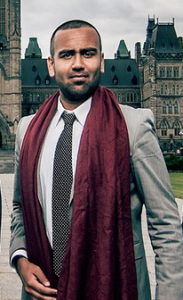How do Currencies and Interest rates play off each other?
Taken from the BBC article:
More recently, many developing countries have had to contend with their own currencies rising and undermining their competitiveness.
The problem is that those low interest rates in the developed world have led investors to seek higher returns elsewhere, in emerging markets.
To invest in those markets, they need to buy the currency and that pushes its value up. That in turn makes those countries’ goods more expensive for foreign buyers and the overseas investment money creates a danger of unsustainable bubbles in their property and financial markets.
China has stopped its currency rising much by buying foreign currency. If it were to refrain from that and allow the yuan to rise, it would probably help other developing countries that compete with China, as well as the US which is protesting the most.
But there is another force behind the rising developing world currencies. Their economies are growing robustly, while the rich countries are not.
The tension over between the US and China over currency policy surfaced once again at the International Monetary Fund Talks
USA renewed the pressure on China to allow its currency to rise. The US has a long-standing grievance over China’s currency policy, which limits the movement of the yuan against the dollar. The American complaint is that it gives Chinese exporters an unfair competitive advantage.
There was a vigorous response from Zhou Xiaochuan, governor of China’s central bank (The People’s Bank of China), who blamed the rich countries for problems in the currency markets. Mr Zhou said extremely low interest rates in rich countries had created “stark challenges for emerging market countries”.
My Thoughts on the Gap.
Tensions are rising among the developing world and developed as priorities on currency (non)-manipulation begin to clash. However, should a country stop manipulating its currency in the name of fairness?
Destabilizing the economy in the short run, running the risk of damaging the private sector as businesses go bankrupt; jeopardizing an economy’s growth and ability to reduce poverty does not sound fair. The notion of fair implies morals which begs the question: who is making these moral rules?
WTO, IMF, WB, USA, CHINA, WALDO?
International economics is a game where rules are subjective but actual substantive growth is tangibly objective. I am not for currency manipulation but neither am I for irrational and sudden policies that would jeopardize an entire economy. Especially not the economy that is the driving force of world growth in terms of consumer consumption.


